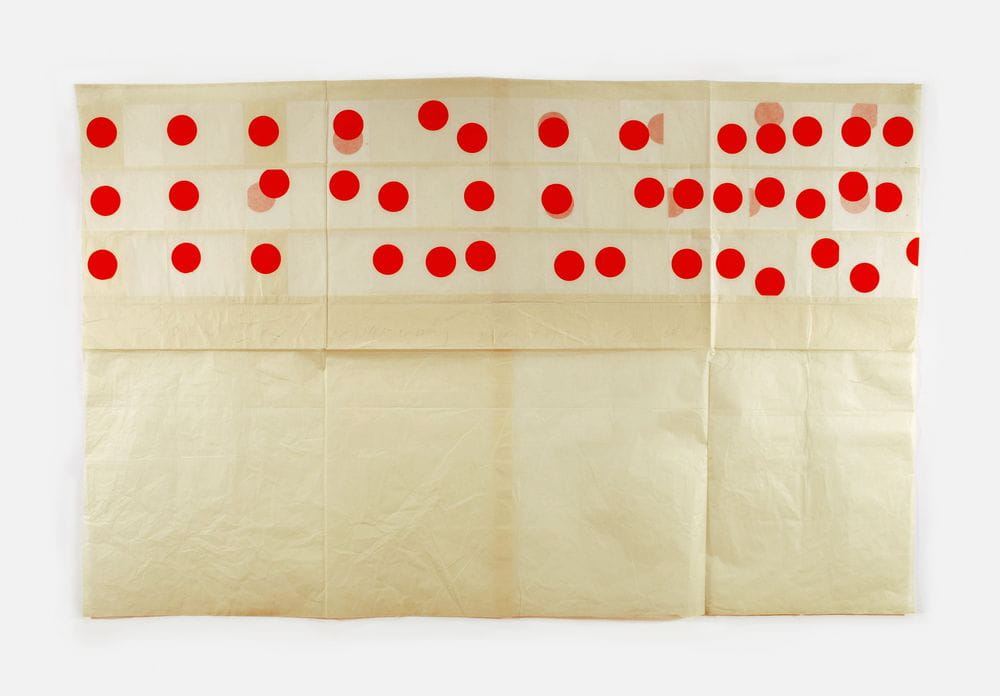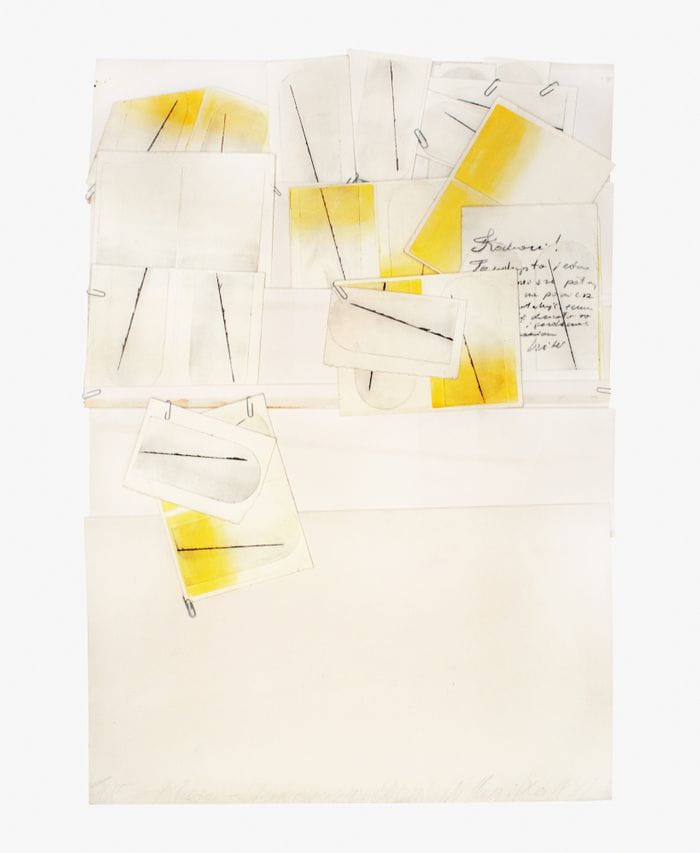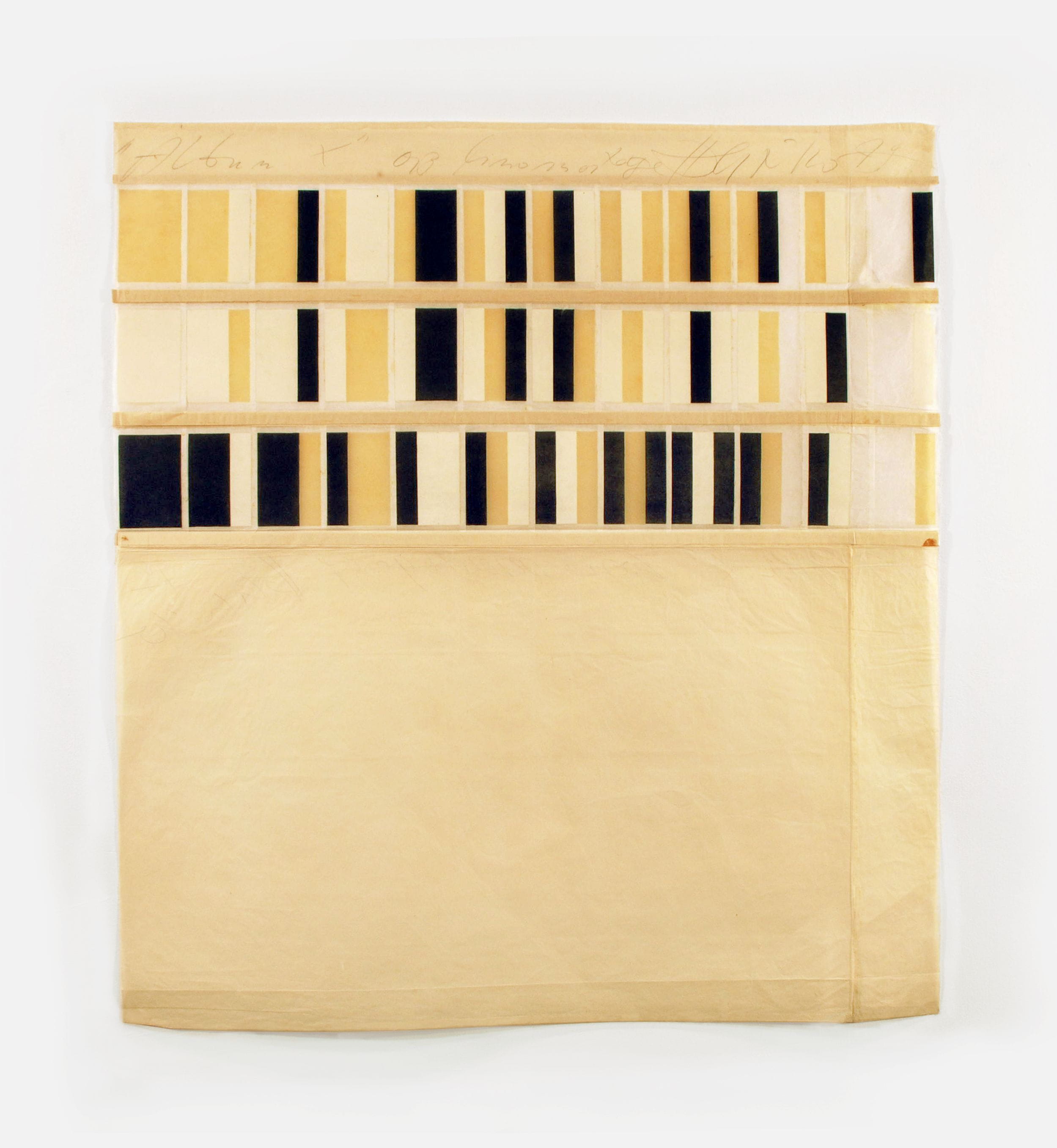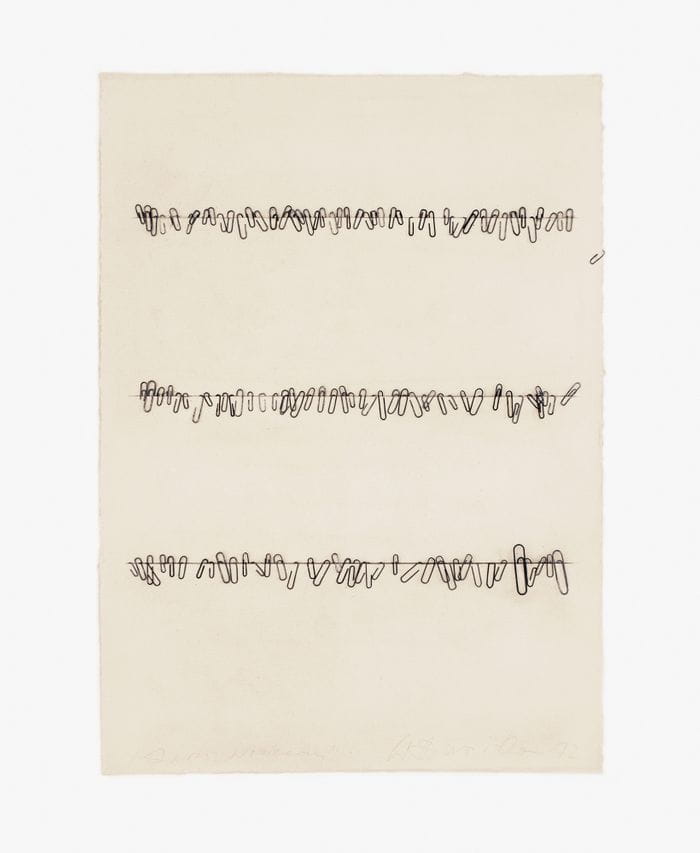Albums

Wincenty Dunikowski-Duniko, Album II a, 1972
Started in 1971, Albums consist of organic or geometrical modules arranged in rows whose linear pattern is occasionally disturbed in terms of rhythm, or layout.
With these sequential structures concentrated mostly in the upper halves of the works, through partial overlapping the continuum appears disrupted or brought to a halt.
Breaking with conventions, challenging the once established methods, or interfering with rhythms makes each of the created works unique. At the same time, large portions of the compositions left without any intervention amplify the expression of emptiness.

Wincenty Dunikowski-Duniko, Album I, Association with the Past, 1972
The titles hint at pages in albums intended for safekeeping precious prints, like stockbooks; the formal means employed, at the archival aesthetic, by connotation to institutions responsible for the processing of knowledge and the preparation of information. Metaphorically, the concept—whose visual outcome is perversely attractive—calls for artistic, political, and diurnal liberty.

Wincenty Dunikowski-Duniko, Album X, 1977
In the seventies, postconceptual artists revisited, revised, and revived printmaking—it became an adequate language for self-referential renderings, a tendency promulgated by influential exhibitions (e.g. Ljubljana Biennial of Graphic Arts).
Albums count as Paper Art which—as the artist’s own classifier—underscores the natural qualities of the material. Assembled using the ‘no print prints’ method—that is, by stressing the processes of assembly, of folding, applying successive layers, gluing—these are not products of printing, yet they do constitute an integral part of those items (e.g. The Folded Sfumato, 1971).

Wincenty Dunikowski-Duniko, Be Right Back, 1972
Written by Krzysztof Siatka